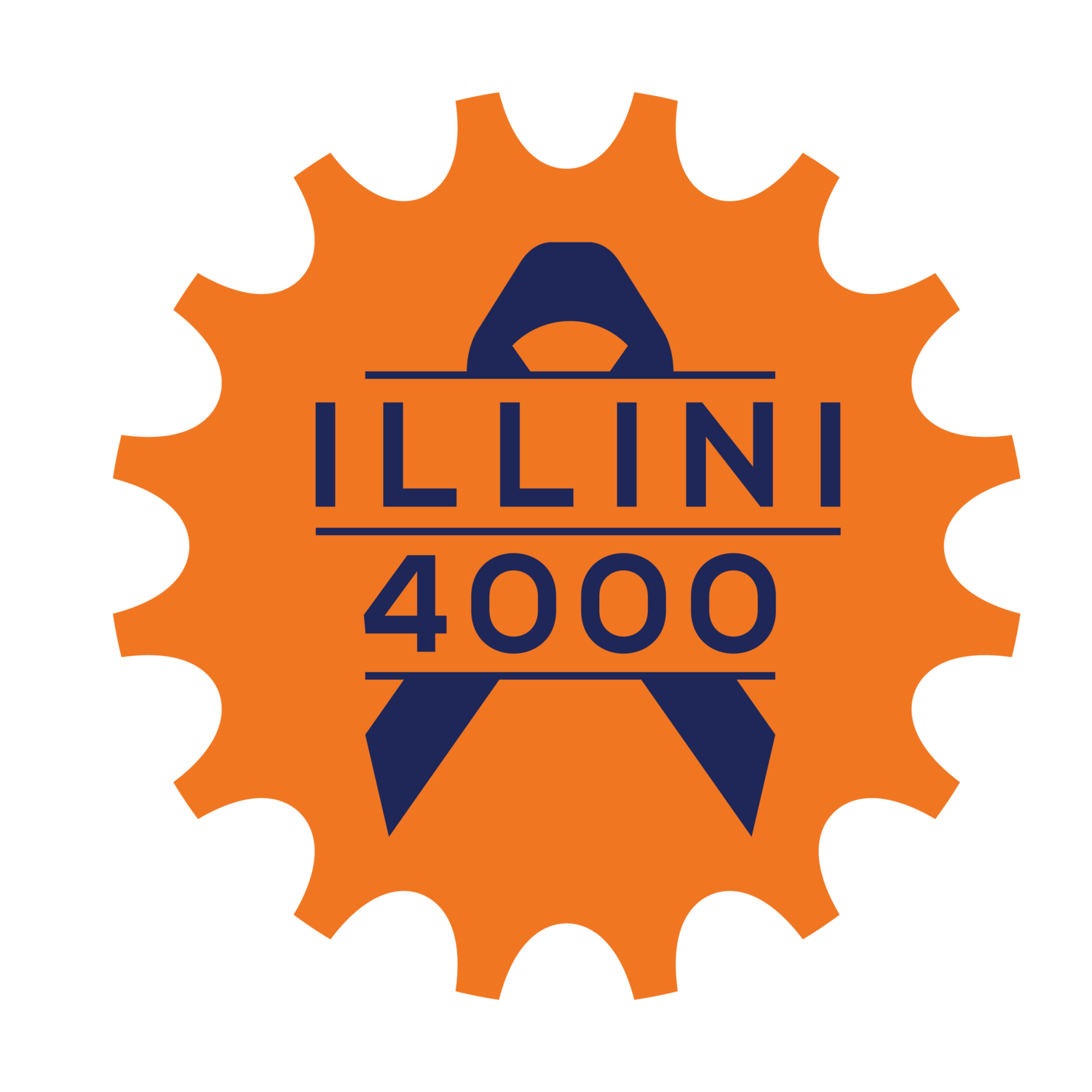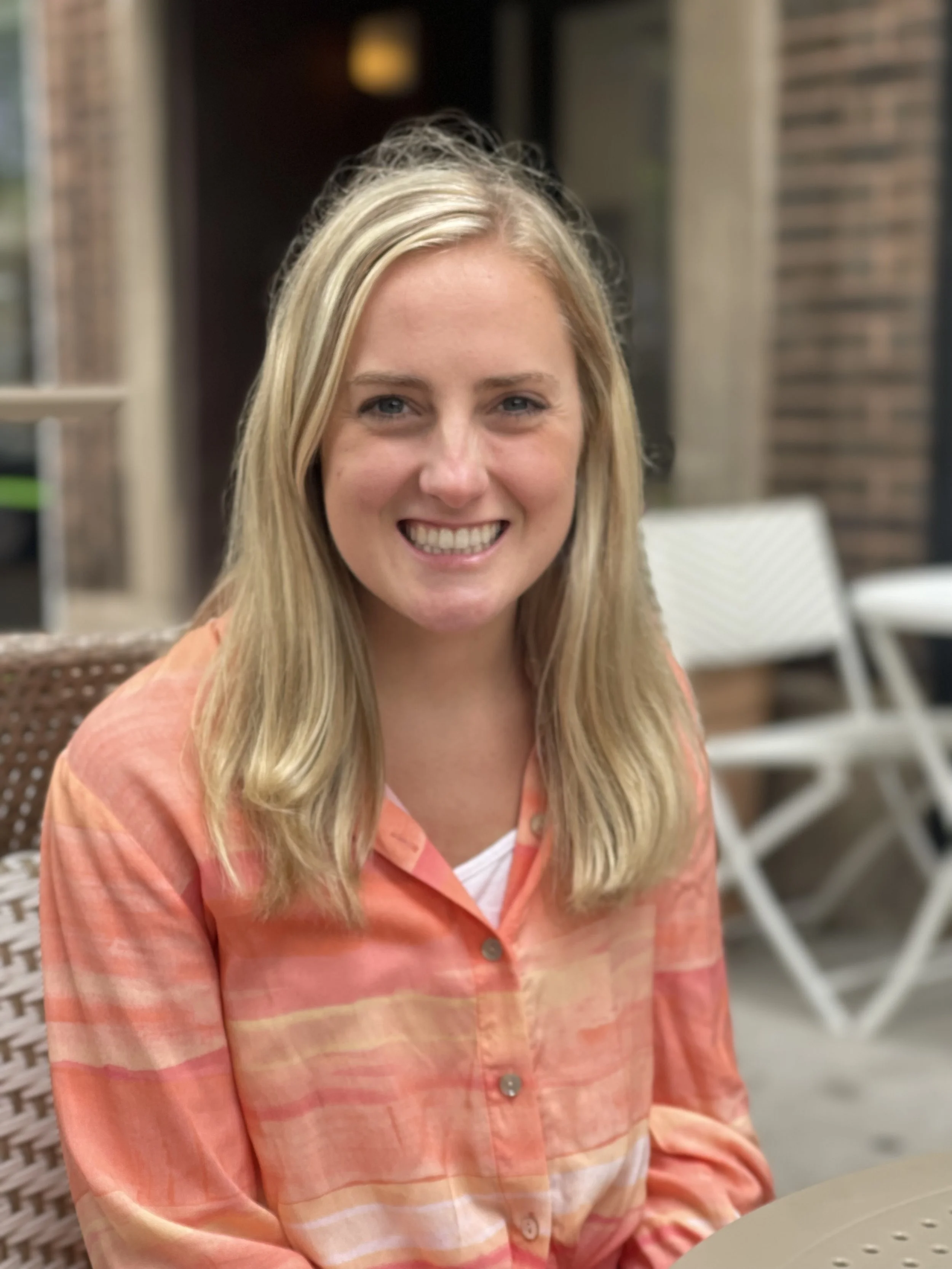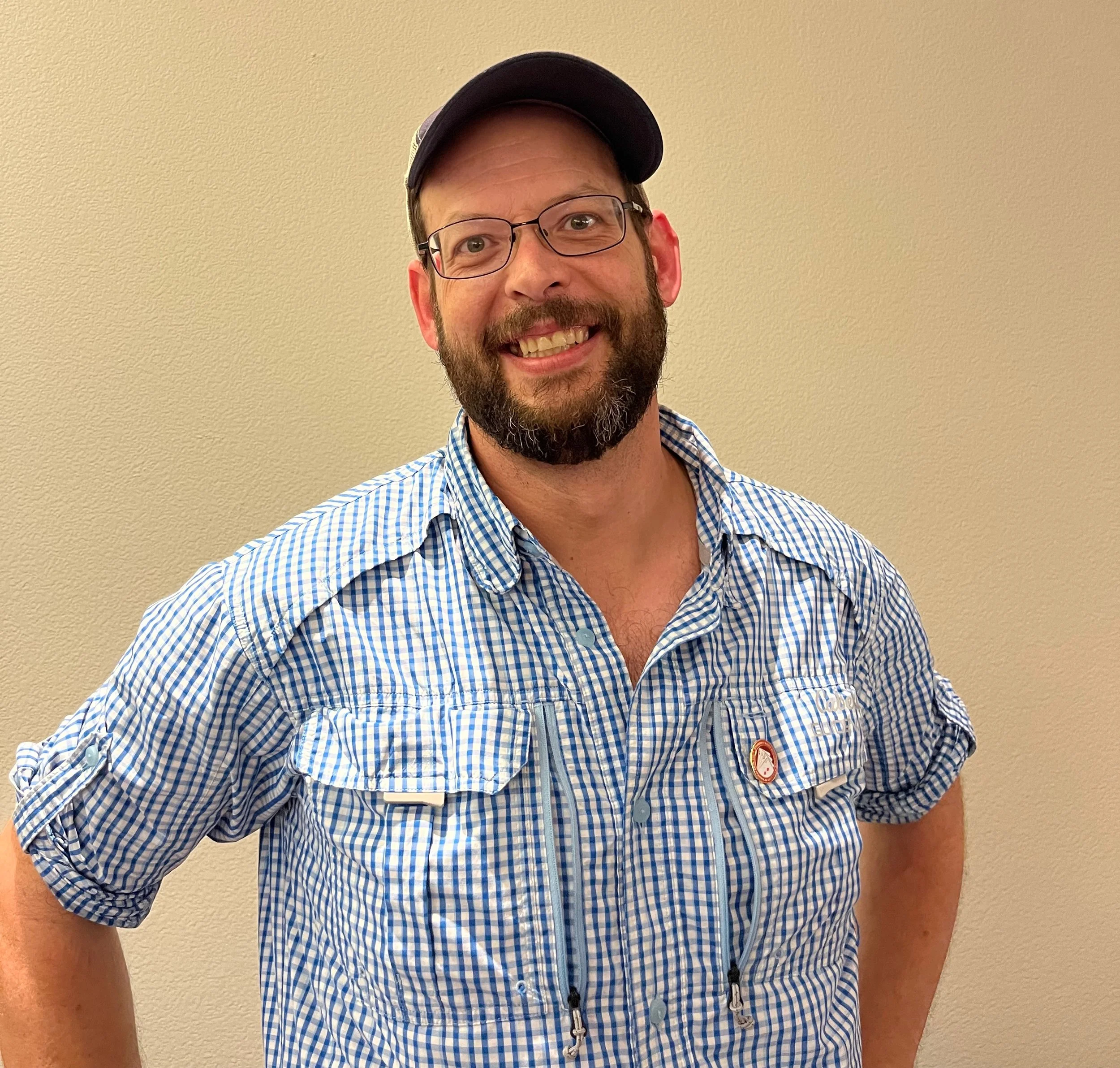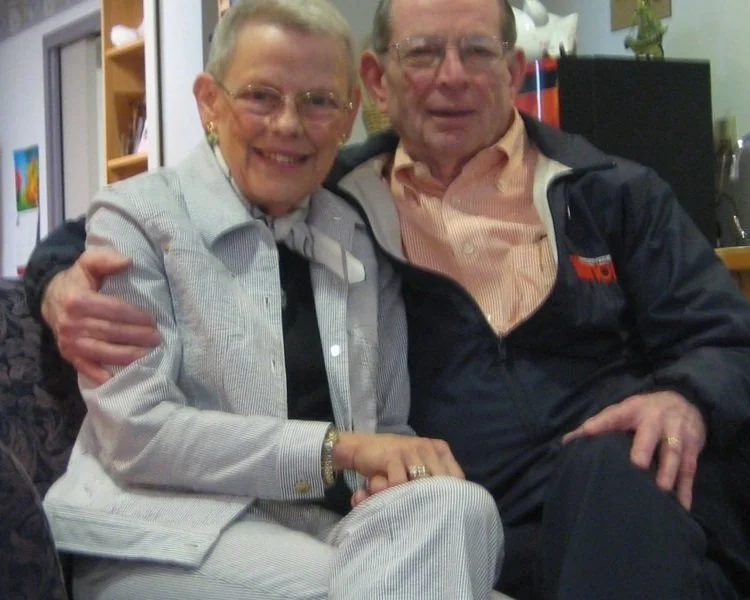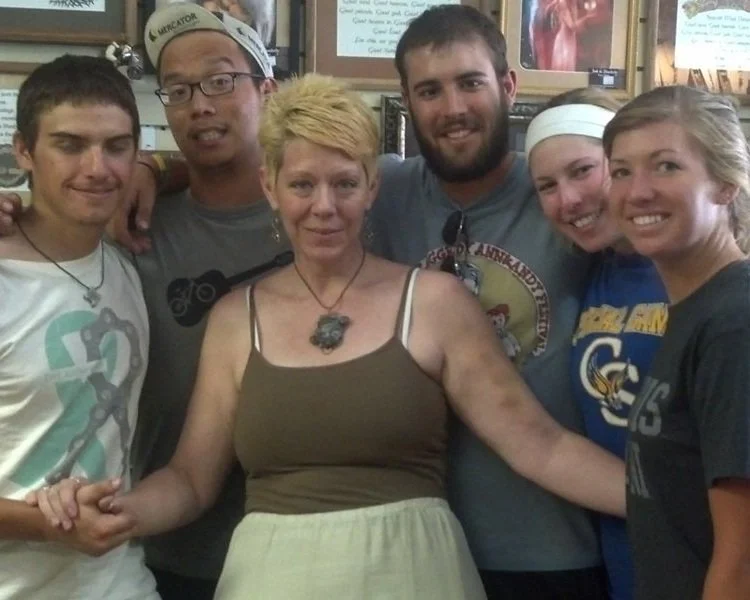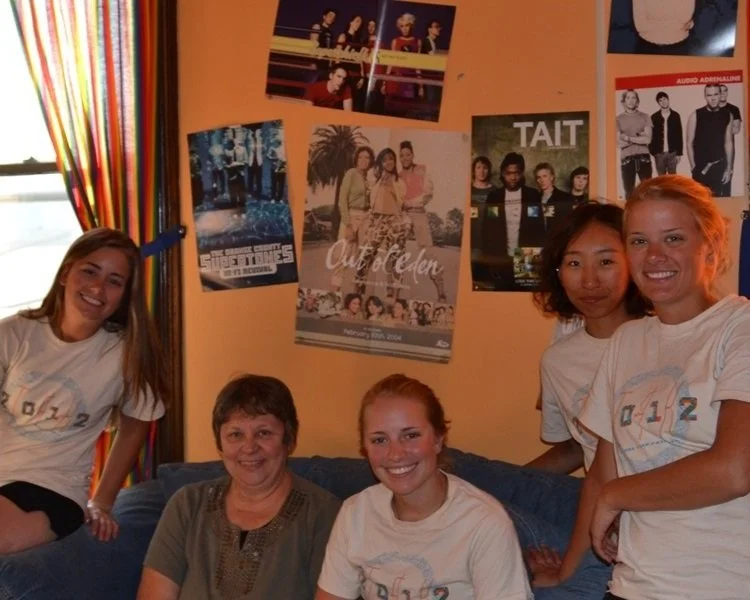“You need some distraction so you’re not sitting at home going “Oh, that next treatment’s coming up. I don’t wanna do this” or “The last one was horrible” or “Nothing tastes good.” Beyond that, the hard ones are the people that don’t have a lot of family. We have a few people who will sometimes meet and go and sit with them while they’re going through chemo. It’s a mental game. You just remind them, it does get better.”
Joanne and Robert Gernon
“We really need to help those who can’t afford cancer treatment because cancer is very expensive and it can financially drain you if you’re not prepared for it. Which we weren’t prepared, but thank goodness I had wonderful medical coverage. Because that’s what got me through. So I was very fortunate, too, that I was able to have sick time that I had on my own that I could rely upon to be out. And I almost had enough to cover me from June of last year until March of this year.”
Brad and Patty Moomey, Kathy Graham
“Talking with fellow workers and other people in the community, towards the end of life or retirement, there are two biggest things that affect your life. One is retirement and the other is the loss of your spouse. And that hit me really hard. That’s when I hit the realization that things were as dire as they were. The cancer had progressed so rapidly through her body that it was going to be a real challenge and a good possibility that it wasn’t going to be a winning challenge, that anything was going to work for it. And that was a very difficult thing to overcome. But we did. She took the drugs well; she responded to the drugs. And six years later, we’re still here. We’re still here, and we’re here together. And that’s where I keep saying, the hope, the faith, and the love are the key factors.”
Loretta Funk-Culpepper
“I think my husband [was the best support] because he was there all the time. We went in for consultation with the doctor after surgery. The doctor had asked Ron, “How do you feel about this?” And Ron said, “It wasn’t her fault. It’s no different than her losing an arm or a leg.” And the doctor said, “You two will be fine. You’d be surprised how many husbands will divorce their wives because they lost a breast.” This really surprised me because I thought: it can’t be love. I mean, how can you adore a part of the body like that, you know? So I felt very secure with my marriage.”
Ann Thoburn
“So I have already been the caregiver, I’ve been the recipient of cancer and I’ve been re-diagnosed with cancer. I understand the stress of being a caregiver, especially when you go from having a spouse to being a caregiver for that spouse. You know you’re a caregiver for your children, you’re a caregiver for your elderly parents; you don’t expect being a caregiver for your spouse, you expect to work together.”
Jan Mulvaney
“The day I was diagnosed, I had never felt better in my whole life. And then to be told you have cancer, you just spend a while just even comprehending what that means. In the 6 years, as merle said it, it really is a journey. It’s not journey you go through by yourself, the caregiver role is incredibly important. So it’s a journey that impacts and affects the whole family.”
Colista Lich
“I can say the best thing that I did was, my wife started a care pages blog for me. I update my blog everyday on what goes on. I've got over 150 people that follow it every day. They can write messages back to me on the blog so I don't get the 50 phone calls a day anymore. … When you're feeling down and out, or lack of energy cause of your chemo, that's a huge emotional tool, a great tool so I recommend that to anybody, start a care pages blog.”
Karen Hill Ambler
“You know, my daughter, I'm very concerned for her. Her doctor would not give her a mammogram until she was 40. I think this is something that needs to stop. People younger than you girls are coming down with breast cancer or some form of cancer. And they will find a cure to this, I'm sure they will. But until then, I cannot stress a mammogram enough. The doctor that found mine was very young. After I went through my surgeries, I went back and I looked at him and said, “thank you.” He said, “you're the first one that has ever said thank you.” So I felt good, I felt good about that. But your family doctor, you know, they are just that - family doctors. They are not specialists and I can't stress enough to look for a breast cancer specialist.”
Michelle White Eagle
“When working with cancer patients at the medical clinic, you’re definitely forming relationships with them. You see them all the time, so you can start to interact with them on a much deeper level. You’re sharing something very personal with them and I consider that an opportunity to be encouraging and to help spread cheer because what they are doing is hard. My job is to be the best friend to them that I can be.”
Debbie Richardson
“At one point I did think, why me? What did I do? But it’s nothing that you’ve done: it’s just something that happens. But I do think that your attitude, your outlook on things, has a tremendous effect on your recovery. I think it’s so easy to feel bad for yourself, but you have to look beyond that. But I really don’t think God is finished with me yet. I still think there are things He has in mind for me that He wants me to do. I don’t feel that my life is over… I’m happy to be getting older, which means I’m still here.”
Betty Schatz
“It’s taught me to take one day at a time and to lower my expectations. I shouldn’t expect people to treat me differently because I had cancer. It affects everybody. Even if you don’t have cancer yourself, you know people who have it or you know people whose family is going through this. You just take everything one day at a time. You don’t think about what’s going to happen in the future.”
Leanne Eagleman
“There’s a lot of things I think that the American Cancer Society is doing, and providing to people all over the nation, you know. And myself, going to Washington D.C., during the celebration on the hill, that event was to get our legislators in Washington DC to support all American Cancer Society’s efforts. We got their signatures, and I was happy about that. That was a goal that we met, getting their signatures, and their promise to help. I will do anything I can.”
